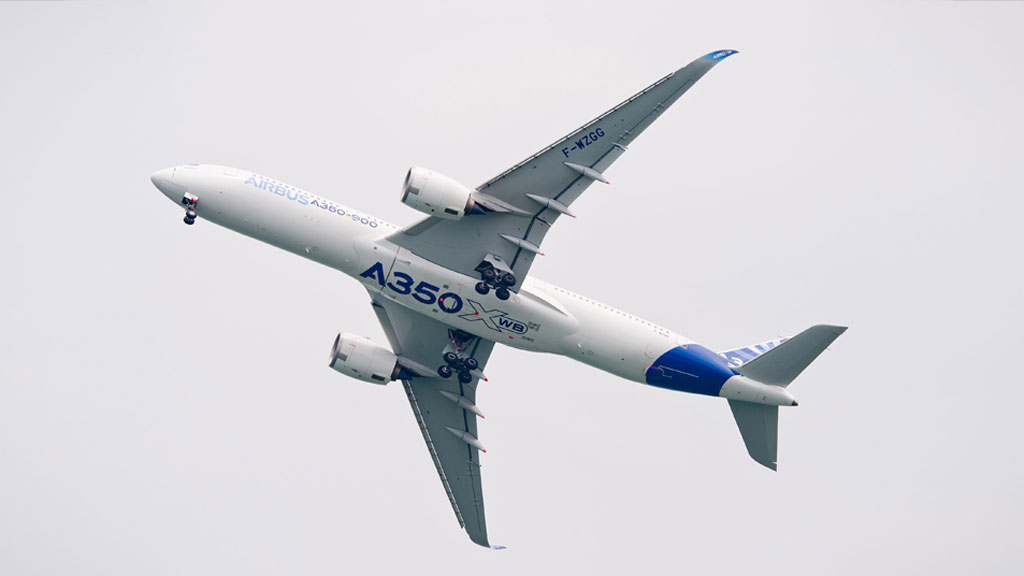Backtracking on Airbus purchases will impact Bangladesh’s trade relations with Europe, says German ambassador

Published :
Updated :

Germany’s Ambassador to Bangladesh Rüdiger Lotz has warned that Dhaka’s trade relations with Europe could be strained if it rows back on its commitment to purchase aircraft from Airbus.
He also hinted that the Airbus decision could impact the EU’s decision on allowing Bangladesh to maintain its Generalised System of Preferences Plus (GSP+) status for trade.
“The Airbus question -- whether it will have implications on our trade relations -- of course it would. Of course it would,” Lotz told reporters at a DCAB Talk event in Dhaka on Wednesday.
“As I said, we are Bangladesh’s most important trading partner. We have a feeling that we have been treated in such a way that we can conduct bilateral relations. I think there needs to be a trust factor in trade relations. We are the most important business partner for Bangladesh and we want to feel that we have been treated in our bilateral relations in such a way that this should continue. I think we need reliability in business contacts.”
Airbus, a France-based aircraft manufacturer, has been trying to sell jets to the state-owned Bangladesh Biman Airlines since the erstwhile Awami League government's rule, which ended in the face of a mass uprising last year.
During a joint press conference with then prime minister Sheikh Hasina during his visit to Dhaka in September 2023, French President Emmanuel Macron said that Bangladesh had “committed to buying” 10 large aircraft from the French company Airbus.
The American company Boeing also began to make overtures as Bangladesh “considered” buying eight passenger and two cargo jets from Airbus. Hasina’s government fell in August 2024 amid these negotiations.
The trade war US President Donald Trump kicked off after taking office for a second term in January has also affected Bangladesh. In July, the interim government announced its decision to buy 25 aircraft from the US company Boeing to avoid a 35 percent tariff on Bangladeshi goods in America.
The decision sparked further uncertainty over the promise to buy 10 large aircraft from Airbus for Biman. Europe has since begun to make moves and press the Bangladesh government to buy the Airbus aircraft.
In June, when Chief Advisor Muhammad Yunus visited the UK, he met Airbus Executive Vice President Wouter van Wersch. Since then, the company's representatives have been in constant contact with the government's higher-ups.
According to the regulations, if there is need for aircraft in Bangladesh’s aviation industry, the relevant company requests it. But now Biman, the company that will use the aircraft, are in the dark about how they will be purchased.
Earlier this month, the ambassadors of the UK, France, Germany and the European Union simultaneously expressed their expectation at the French embassy that “reasonable” consideration be given to buying Airbus aircraft during the negotiations.
They not that the market for Bangladeshi products in Europe was worth several billion euros, repeatedly reminding Bangladesh of its upcoming transition from LDC status, its duty-free access to the UK market, and long-term partnership.
A journalist asked German Ambassador Lotz about the impact of Bangladesh's withdrawal from the talks to buy aircraft from Airbus at a Diplomatic Correspondents Association, Bangladesh event on Wednesday.
He said, “I mean there is a whole background of course, when it comes to questions like GSP+ it's not about threatening anyone, not at all. But, of course, decisions that are linked to the bilateral economic relations, also depend to some extent on decisions like that (Airbus).
“Things like the whole GSP+ decision or how these negotiations go, the decision on Airbus here will change the atmosphere a bit. That's actually all I can say.”
Bangladesh is scheduled to graduate from LDC status and be considered a developing country on Nov 24, 2026. According to the rules of the World Trade Organization, no country will get duty-free or other benefits if it transitions from LDC status to developing country status.
Currently, Bangladesh is getting duty-free access to the European market under the “Everything But Arms (EBA)” policy. Even if it transitions from an LDC, there is an opportunity for it to get duty-free access under the European Union’s GSP+ policy.
Although Bangladesh can make a “free and independent” decision regarding Airbus, the ambassador reminded that it would still have an impact.
“As in personal life or in business life, each decision we take also has some consequences for the general mood and the atmosphere. And we will continue to have close business relations because it's in our mutual interest. But if you ask me - does it, would it have consequences or would it have some impact? Perhaps it's a strong word to say, but would it have some impact? Yes, it would.”


 For all latest news, follow The Financial Express Google News channel.
For all latest news, follow The Financial Express Google News channel.